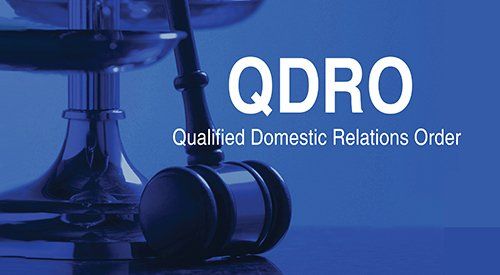Another Way to Collect Child Support and Child Support Arrearages

Collecting child support in divorce and family law cases can sometimes be a difficult proposition. A Court may enter an order for child support against a spouse, former spouse, or parent, but they may not comply with the order. This creates a financial burden on the other spouse or parent, especially when the obligated spouse or parent is unemployed or under employed.
The usual remedy to this problem is the filing of a petition with the Court to enforce the child support order. In many cases, however, this does not resolve the problem, as the obligated spouse or parent is unemployed or possibly even retired.
There is another method available for collecting current or past due child support arrearages in some cases. This is through the entry of a Qualified Domestic Relations Order or QDRO. A QDRO is a court order directing a retirement plan administrator of an obligated parent or spouse, to make a payment(s) to a spouse, former spouse, or parent, for current or past due child support. The QDRO can be used to collect child support payments from a 401k plan, pension plan, or other retirement account of the parent owing child support. They can be used in divorce, child support and parentage cases involving the payment of child support or enforcement of child support orders, and collecting child support arrearages. The process of preparing and implementing a Qualified Domestic Relations Order (QDRO) requires the assistance of an experienced attorney.
We at Lavelle Law have experience in preparing and implementing QDROs in family law cases. We provide a 30 minute free consultation to discuss your legal needs. Please contact me at (847)705-7555 or at Jolszowka@lavellelaw.com.
More News & Resources
Lavelle Law News and Events











